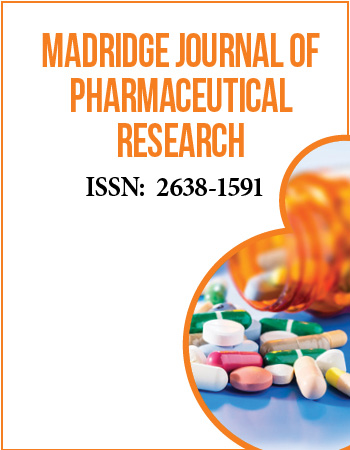2nd International Conference on Pharma & Nutrition, Health and Aging
August 1-2, 2019 Valencia, Spain
Observations on Nutritional Diet of a Transylvania Lactating Women Group with Potentially Impact of Early Life Nutrition and Long Term Effects
1Laboratory of Molecular Nutrition and Proteomics, Institute of Life Sciences, Food Science Department, Faculty of Food Science and Technology, University of Agricultural Sciences and Veterinary Medicine of Cluj-Napoca, Romania
2Department of Drug Analysis, Iuliu Hatieganu University of Medicine and Pharmacy, Romania
3Department of Bromatology, Iuliu Hatieganu University of Medicine and Pharmacy, Romania
4Medical Clinic IV, Iuliu Hatieganu University of Medicine and Pharmacy, Romania
5Diabetes and Metabolic Diseases, Iuliu Hatieganu University of Medicine and Pharmacy, Romania
6Food Engineering Department, University of Agricultural and Veterinary Medicine of Cluj-Napoca, Romania
7Proteomic and Metabolomic Department, Iuliu Hatieganu University of Medicine and Pharmacy, Romania
Breast milk composition of the lactating women highly vary with their nutrition habits and thus vary many nutrients that are essential for growth and development and are secreted in breast milk. The aim of the present study was to evaluate the energy and nutrient intake from food of lactating mothers during a self-selected diet in a Romanian sample population from Transylvania.
Methods: A total of 33 lactating women living in Cluj county, from Transylvania were surveyed and average intake was recorded by 7-day diary and a general questionnaire, both designed by the research team. An experienced member of the research team trained every woman.
Results: The results highlighted that energy intake was significantly lower compared with the level of energy intake recommended for lactating women and the distribution of macronutrients was misbalanced in the study group. The results indicate that lactating mothers have an inadequate intake of energy (1879.00 kcal/day for mothers in G1 vs. 2744 kcal/day recommended and 1770.08 kcal/day for mothers in G2, G3, G4 vs. 2803 kcal/day recommended). Results from the current study and from similar studies in different countries which reflect that lactating mothers have a poor energy and nutrient balance can be attributed to low intakes of nutritious food categories such as fruits, vegetables, legumes, low- fat dairy and oily-fish and high intakes of saturated fat rich foods. With such inadequate food intake, mothers might be at risk of depleting their energy and nutrient reserves, therefore affecting breast milk composition with a negative health impact.
Conclusions: In the present study, lactating mothers did not meet dietary recommendations of energy intake and macronutrient, except for proteins. These results highlight the importance that women, during breastfeeding, should receive proper information from professionals in order to improve their overall nutrition.
Biography:
Ramona Suharoschi has more than 20 yearsʼ experience in the field of applied nutrigenomics in food science, development and optimization of nutritional intervention of functional food products, food safety and food toxicology. She had completed PhD in the field of Medical Sciences (Vet Medicine) at the University of Agricultural Sciences and Veterinary Medicine of Cluj-Napoca, Romania, following a research stage at the University of Reno, Nevada USA and the University of Ulster, Coleraine, Northern Ireland with the research topic “In silico Studies of Prostate Cancer”. She had published more than 100 papers in national and international journals of scientific flow.


